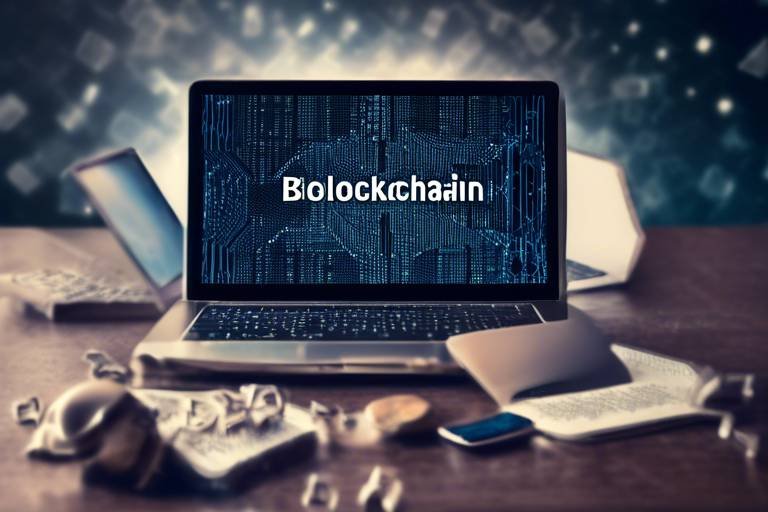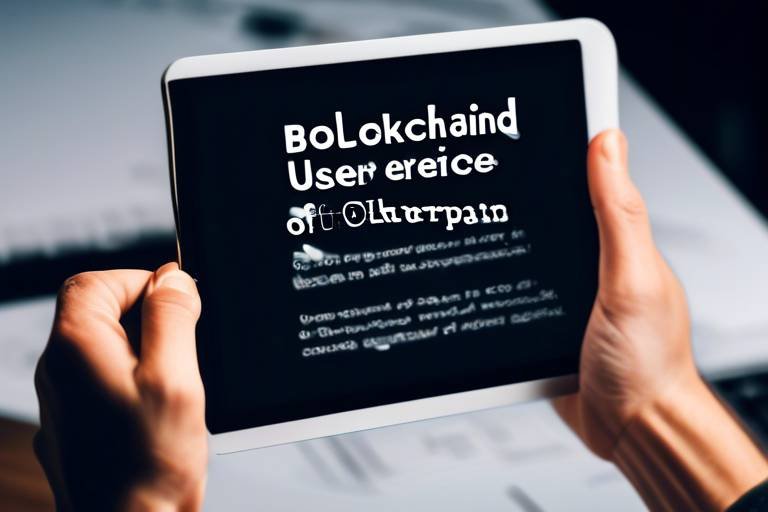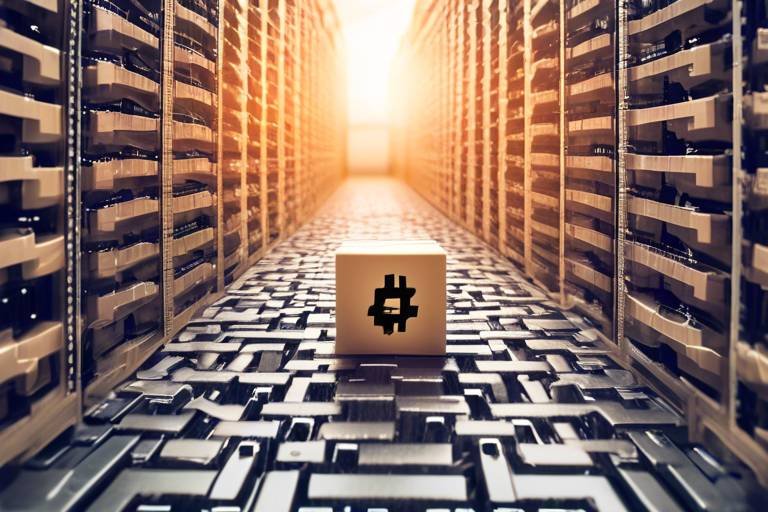How Blockchain Can Support Ethical Supply Chains
In today's fast-paced world, where consumers are more conscious than ever about the origins of their products, blockchain technology is emerging as a game-changer in the realm of ethical supply chains. Imagine a world where you can track the journey of your favorite shirt from the cotton fields to your closet, ensuring that every step of the process adheres to ethical standards. This is not just a dream; it's becoming a reality thanks to blockchain.
Blockchain, at its core, is a decentralized ledger that records transactions across multiple computers. This means that once a transaction is recorded, it cannot be altered, providing an unparalleled level of transparency and accountability. In an era where consumers demand more from brands, blockchain offers a solution that can help businesses build trust and credibility.
By enabling real-time visibility into supply chains, blockchain allows stakeholders to track products at every stage of their journey. This transparency not only helps in verifying the authenticity of products but also ensures that ethical practices are maintained throughout the supply chain. For instance, if a company claims that its products are sourced from fair-trade suppliers, blockchain can provide the necessary documentation to back up that claim. This level of transparency can significantly enhance a brand's reputation, leading to increased customer loyalty and sales.
Furthermore, the integration of smart contracts within blockchain can automate and enforce ethical standards in supply chains. These contracts execute automatically when predefined conditions are met, ensuring that all parties adhere to agreed-upon ethical practices. For example, if a supplier fails to meet labor standards, a smart contract can automatically halt further transactions until compliance is restored. This not only streamlines operations but also holds all stakeholders accountable for their actions.
As we delve deeper into how blockchain can revolutionize supply chains, it becomes clear that the technology not only addresses the pressing challenges faced by traditional supply chains but also aligns perfectly with the growing consumer demand for ethical sourcing. In the following sections, we will explore the intricacies of blockchain technology, the importance of ethical supply chains, and how this innovative solution can foster a more responsible and sustainable marketplace.
- What is blockchain technology? - Blockchain is a decentralized digital ledger that securely records transactions across multiple computers.
- How does blockchain enhance supply chain transparency? - It provides real-time visibility into the journey of products, allowing stakeholders to track them from origin to end-user.
- What are smart contracts? - Smart contracts are self-executing contracts with the terms of the agreement directly written into code, ensuring compliance with ethical standards.
- Can blockchain help reduce fraud? - Yes, blockchain can mitigate fraud and counterfeiting by providing a reliable and verifiable record of transactions.
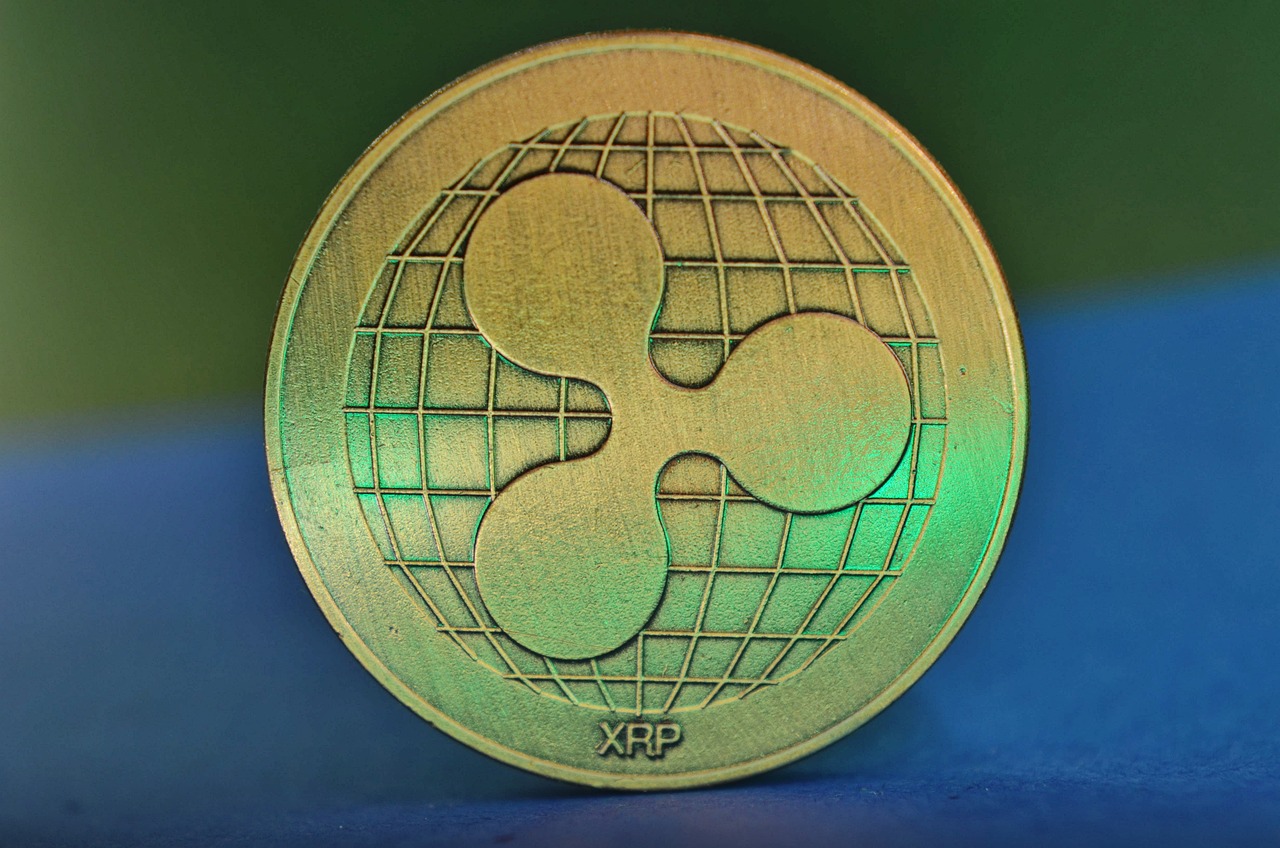
Understanding Blockchain Technology
Blockchain technology is often hailed as a revolutionary force, and for good reason. At its core, a blockchain is a decentralized digital ledger that records transactions across many computers in such a way that the registered transactions cannot be altered retroactively. This means that once information is entered into the blockchain, it is virtually immutable, providing a level of security and trust that traditional systems simply cannot match. Imagine a book that everyone can read, but no one can erase or modify the entries; that’s essentially what a blockchain is.
One of the key features of blockchain is its transparency. Each participant in the network has access to the entire ledger, which means that all transactions can be verified by anyone involved. This is a game-changer for industries where trust is paramount, such as supply chain management. With blockchain, every step of a product's journey can be traced and verified, from the raw materials to the final consumer. This transparency not only helps in building trust among stakeholders but also enables consumers to make informed choices about the products they purchase.
Another essential aspect of blockchain technology is its decentralization. Unlike traditional databases controlled by a single entity, a blockchain is maintained by a network of computers (often referred to as nodes). This decentralization reduces the risk of a single point of failure and makes the system more resilient to attacks and fraud. Each node in the network has a copy of the entire blockchain, ensuring that the information is always available and up-to-date.
Moreover, blockchain operates on a consensus mechanism, which is a protocol that considers a transaction valid only when a certain number of nodes agree on its authenticity. This mechanism can vary, with popular methods including Proof of Work and Proof of Stake. These consensus methods ensure that all participants in the network agree on the current state of the blockchain, thus preventing fraudulent activities.
To further illustrate how blockchain works, let’s consider a simple example. Imagine a supply chain for coffee beans. Each transaction—from the farmer harvesting the beans to the retailer selling the coffee—can be recorded on a blockchain. This record would include details such as the date of harvest, the location, and the quality of the beans. By scanning a QR code on the coffee package, consumers could access the entire history of their coffee, ensuring that they are making ethical purchasing decisions. This is the power of blockchain in promoting ethical supply chains.
In conclusion, understanding blockchain technology is crucial for grasping its potential impact on supply chains. Its features of transparency, decentralization, and consensus mechanisms create an environment where ethical practices can thrive. As businesses and consumers alike begin to recognize the value of these attributes, we’re likely to see a shift towards more responsible sourcing and manufacturing practices.
- What is blockchain technology?
Blockchain technology is a decentralized digital ledger that records transactions across multiple computers, ensuring that the data cannot be altered retroactively. - How does blockchain enhance transparency in supply chains?
Blockchain allows all participants in the supply chain to access the same information, making it easier to track products and verify their origins. - What are smart contracts?
Smart contracts are self-executing contracts with the terms of the agreement directly written into code, which can automate processes and enforce compliance within the supply chain. - Can blockchain reduce fraud?
Yes, by providing a secure and immutable record of transactions, blockchain can significantly mitigate the risks of fraud and counterfeiting.

The Importance of Ethical Supply Chains
In today's rapidly evolving market, the concept of ethical supply chains has become more than just a buzzword—it's a necessity. Consumers are increasingly demanding transparency and accountability from the brands they support. Gone are the days when buyers would simply purchase products without considering their origins or the methods used to produce them. Today, consumers are more aware of the social and environmental impacts of their purchasing decisions. They want to know if the products they buy are made with respect for human rights and the planet. This shift in consumer behavior is pushing companies to rethink their supply chain practices.
Moreover, ethical supply chains are crucial for maintaining a company's brand reputation. In a world where information spreads like wildfire, negative news about unethical practices can severely damage a brand's image. A single scandal can lead to a significant loss of trust, which is hard to rebuild. As a result, businesses are realizing that investing in ethical practices isn't just the right thing to do; it's also a smart business strategy. Companies that prioritize ethical supply chains often enjoy stronger customer loyalty and can differentiate themselves in a crowded marketplace.
Additionally, the rise of social media has empowered consumers to voice their opinions and hold companies accountable. A tweet or a post can go viral, shining a spotlight on unethical practices and prompting immediate action from businesses. This newfound power means that consumers are not just passive recipients of products; they are active participants in a larger conversation about ethics and sustainability. Companies that fail to adapt to these expectations risk being left behind.
To illustrate the importance of ethical supply chains, consider the following factors:
- Consumer Demand for Transparency: Shoppers are increasingly looking for brands that provide clear information about their sourcing and manufacturing processes.
- Corporate Responsibility: Businesses are being held accountable for their impact on society and the environment.
- Impact on Brand Reputation: Ethical practices can enhance a brand's image, while violations can lead to public backlash.
In conclusion, the importance of ethical supply chains cannot be overstated. They not only meet the growing expectations of consumers but also foster a culture of responsibility and integrity within businesses. As we move forward, it's clear that companies that embrace ethical supply chains will not only survive but thrive in the modern marketplace.
Q: What is an ethical supply chain?
A: An ethical supply chain prioritizes fair labor practices, environmental sustainability, and transparency throughout the entire production process.
Q: Why should companies care about ethical supply chains?
A: Companies should care because ethical supply chains enhance brand reputation, meet consumer demand for transparency, and mitigate risks associated with unethical practices.
Q: How can blockchain technology contribute to ethical supply chains?
A: Blockchain technology provides real-time visibility and traceability in supply chains, enabling stakeholders to track products from origin to end-user, thereby enhancing accountability.

Challenges in Traditional Supply Chains
When we think about traditional supply chains, it’s easy to picture a long, winding road filled with bumps and potholes. These bumps represent the myriad of challenges that businesses face in ensuring their products reach consumers ethically and efficiently. One of the most significant issues is the lack of transparency. Many supply chains operate like a black box; consumers and even the companies themselves often have little visibility into where their products come from or how they are made. This opacity can lead to serious ethical violations, such as labor exploitation or environmental degradation, which consumers increasingly want to avoid.
Moreover, inefficiencies plague traditional supply chains. From delays in shipping to miscommunication between different stakeholders, these inefficiencies can result in lost revenue and diminished consumer trust. Imagine ordering a product only to find out it was stuck in transit due to poor coordination. Frustrating, right? This not only affects the customer experience but also tarnishes the brand's reputation.
Another major concern is the risk of ethical violations. In traditional supply chains, it’s not uncommon for companies to cut corners to save costs. This can lead to practices such as using substandard materials or employing workers under poor conditions. According to a report by the Ethical Trading Initiative, around 40 million people are trapped in modern slavery, with many working in supply chains that lack proper oversight. These violations can have devastating consequences, not just for the individuals involved but also for the companies' public image.
To illustrate these challenges further, let's consider a few examples:
| Challenge | Description |
|---|---|
| Lack of Transparency | Difficulty in tracing product origins, leading to potential ethical issues. |
| Inefficiencies | Delays and miscommunication that can harm customer satisfaction. |
| Ethical Violations | Exploitation of workers and environmental harm due to lack of oversight. |
These challenges create a perfect storm for brands. With consumers becoming more aware and concerned about ethical sourcing, companies that fail to address these issues risk losing their customer base. Today’s consumers are more than just buyers; they are advocates for change. They demand transparency and accountability, pushing businesses to rethink their supply chain strategies. In this evolving landscape, addressing these challenges is not just a moral obligation but a business imperative.
As we dive deeper into the world of blockchain technology, it becomes clear that it offers promising solutions to these challenges. By enhancing transparency, reducing inefficiencies, and promoting ethical practices, blockchain can transform the traditional supply chain into a more accountable, efficient, and ethical system.
- What are the main challenges in traditional supply chains? Traditional supply chains often struggle with a lack of transparency, inefficiencies, and ethical violations.
- How does blockchain technology address these challenges? Blockchain enhances transparency, streamlines processes, and promotes ethical practices by providing real-time visibility and accountability.
- Why is consumer demand for ethical supply chains increasing? Consumers are becoming more aware of the impact of their purchases, leading them to prefer brands that demonstrate ethical sourcing and transparency.
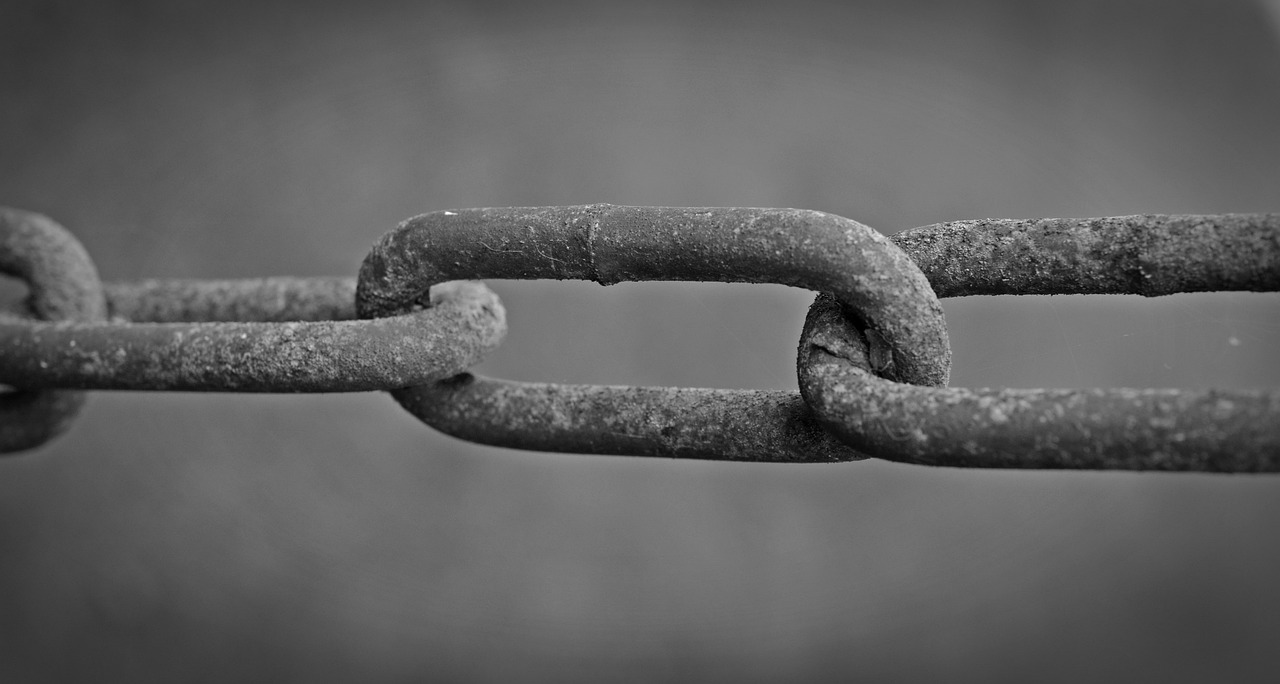
Case Studies of Ethical Violations
In recent years, numerous case studies have highlighted the stark realities of ethical violations within supply chains, underscoring the urgent need for reform. One of the most notorious examples is the Garment Industry, particularly in countries like Bangladesh, where factories have been found to operate under perilous conditions. The Rana Plaza collapse in 2013 serves as a grim reminder of the risks associated with unchecked supply chains. Over 1,100 workers lost their lives due to inadequate safety measures, and this tragedy sparked global outrage, prompting consumers to demand more transparency and accountability from brands.
Another significant case involves the seafood industry, where reports of human trafficking and labor exploitation have surfaced. Investigative journalism has revealed that some seafood products sold in major supermarkets are linked to illegal fishing operations that exploit vulnerable populations. These findings have not only tarnished the reputation of affected companies but have also raised questions about the integrity of their supply chains. Consumers are increasingly aware that their purchases can have far-reaching consequences, and they are demanding ethical sourcing practices.
Moreover, the electronics industry has faced scrutiny over the sourcing of conflict minerals, particularly in the Democratic Republic of the Congo. These minerals, used in products like smartphones and laptops, are often mined under conditions that fund violence and human rights abuses. Companies have come under fire for failing to ensure that their supply chains are free from such unethical practices. This has led to a push for better traceability and accountability, with consumers advocating for brands to adopt more responsible sourcing policies.
These case studies exemplify the pressing need for improved practices within supply chains. They reveal how a lack of transparency can lead to catastrophic consequences, not only for workers and communities but also for businesses that risk losing consumer trust. By adopting blockchain technology, companies can enhance visibility and accountability in their supply chains, ensuring that ethical standards are upheld. This not only protects vulnerable populations but also aligns with the growing consumer demand for transparency and corporate responsibility.
What are ethical supply chains?
Ethical supply chains prioritize fair labor practices, environmental sustainability, and transparency in sourcing and production processes. They aim to minimize harm to workers and communities while promoting responsible business practices.
How does blockchain improve supply chains?
Blockchain enhances supply chains by providing real-time visibility and traceability of products from origin to end-user. This technology enables stakeholders to verify the authenticity of products and ensures compliance with ethical standards.
What are smart contracts in the context of supply chains?
Smart contracts are self-executing contracts with the terms of the agreement directly written into code. In supply chains, they automate processes, enforce compliance with ethical standards, and streamline operations, reducing the risk of fraud and inefficiencies.
Can blockchain eliminate all ethical violations in supply chains?
While blockchain significantly enhances transparency and accountability, it cannot completely eliminate ethical violations. It serves as a tool to improve practices, but ongoing commitment from companies and consumers is essential to foster a culture of ethical sourcing.

Consumer Expectations and Demand
In today's fast-paced world, consumers are becoming increasingly aware of the impact their purchasing decisions have on the planet and society. Gone are the days when shoppers would blindly buy products without considering their origins or the ethical implications behind them. Now, transparency and accountability are at the forefront of consumer expectations. When individuals choose to spend their hard-earned money, they want to know that they are supporting businesses that align with their values. This shift in mindset is reshaping the landscape of supply chains, pushing companies to adopt more ethical practices.
With the rise of social media and access to information, consumers are more informed than ever. They actively seek out brands that are committed to sustainability and ethical sourcing. A recent survey revealed that over 70% of consumers are willing to pay more for products that come from sustainable sources. This statistic underscores the fact that ethical practices are no longer just a nice-to-have; they are a necessity for brands wanting to stay relevant in the market.
Moreover, consumers are increasingly leveraging their purchasing power to demand change. They are no longer passive recipients of products; instead, they are vocal advocates for ethical supply chains. This movement is not just a trend but a fundamental shift in consumer behavior. Brands that fail to meet these expectations risk losing their customer base to competitors who prioritize ethical practices. The pressure is on, and companies must adapt to this new reality.
To illustrate this growing demand, consider the following factors that consumers are prioritizing when making purchasing decisions:
- Environmental Impact: Consumers are looking for products that minimize harm to the environment, from production to packaging.
- Fair Labor Practices: There is a strong demand for transparency regarding labor practices, ensuring that workers are treated fairly and paid a living wage.
- Traceability: Shoppers want to know the journey of their products, from raw materials to finished goods, and how they are sourced.
As a result of these expectations, companies are beginning to invest in technologies that enhance transparency, such as blockchain. By implementing systems that allow consumers to trace the origin of products, businesses can not only meet but exceed consumer demands. This transparency builds trust and fosters a loyal customer base that values ethical practices.
In conclusion, consumer expectations are driving a significant transformation in supply chains. Brands that embrace these changes and prioritize ethical practices will not only enhance their reputation but also secure their position in a competitive market. As consumers continue to demand more from the companies they support, the onus is on businesses to rise to the occasion and lead the way in creating a more ethical and sustainable future.

How Blockchain Enhances Transparency
In a world where consumers are increasingly demanding transparency, blockchain technology emerges as a powerful ally in the quest for accountability within supply chains. Imagine being able to trace the journey of your favorite product—from the moment it was sourced to when it arrives at your doorstep. This is not just a dream; it’s a reality that blockchain facilitates. By providing a decentralized ledger that records every transaction in a secure and immutable manner, blockchain ensures that all stakeholders have access to the same, verified information. This transparency is crucial, as it builds trust among consumers, businesses, and suppliers alike.
One of the most significant advantages of blockchain is its ability to offer real-time visibility into supply chains. With traditional tracking methods, information often gets lost in the shuffle, leading to confusion and mistrust. However, with blockchain, every participant in the supply chain can view updated data as it happens. For instance, if a product is delayed or if there’s an issue with quality, all parties can see this information immediately, allowing for quicker responses and resolutions. This level of transparency not only enhances operational efficiency but also strengthens relationships among stakeholders.
Moreover, the transparency provided by blockchain can also help in identifying and mitigating risks. For example, if a supplier is found to have unethical practices, such as labor exploitation or environmental violations, this information can be quickly disseminated through the blockchain network. By making this data accessible, companies can make informed decisions about their partnerships and ensure that they are aligning themselves with ethical practices. In this way, blockchain acts as a safeguard, promoting responsible sourcing and ethical behavior throughout the supply chain.
To illustrate the impact of blockchain on transparency, consider the following table that outlines key benefits:
| Benefit | Description |
|---|---|
| Real-Time Tracking | Allows stakeholders to monitor the status of products at every stage of the supply chain. |
| Immutable Records | Ensures that once data is recorded, it cannot be altered, fostering trust among participants. |
| Enhanced Accountability | Creates a clear audit trail, making it easier to hold parties responsible for their actions. |
| Risk Mitigation | Facilitates the quick identification of unethical practices or supply chain disruptions. |
In summary, blockchain technology revolutionizes the way transparency is integrated into supply chains. It not only allows for real-time tracking and immutable records but also enhances accountability and risk mitigation. By leveraging these capabilities, businesses can foster a culture of trust and integrity, ultimately leading to more ethical practices. As we move forward, the role of blockchain in enhancing transparency will undoubtedly become more critical, influencing the way consumers perceive brands and their commitment to ethical sourcing.
- What is blockchain technology? Blockchain is a decentralized digital ledger that records transactions across multiple computers in a way that the registered transactions cannot be altered retroactively.
- How does blockchain improve supply chain transparency? By providing real-time visibility and immutable records, blockchain allows all stakeholders to access verified information about products at any stage in the supply chain.
- Can blockchain help reduce fraud in supply chains? Yes, blockchain's secure and transparent nature makes it difficult for fraudulent activities to occur, thereby enhancing the integrity of the supply chain.
- What are smart contracts? Smart contracts are self-executing contracts with the terms of the agreement directly written into code, allowing for automated processes and compliance with ethical standards.

Smart Contracts in Supply Chains
In the realm of supply chains, smart contracts are revolutionizing the way businesses operate. Imagine a world where agreements are automatically executed without the need for intermediaries. That’s precisely what smart contracts offer! Built on blockchain technology, these digital contracts are not only efficient but also transparent and secure. They allow parties involved in a supply chain to set predefined conditions that, once met, trigger automatic actions, ensuring that all stakeholders adhere to ethical standards.
Consider this: when a shipment is sent, a smart contract can automatically release payment to the supplier once the delivery is confirmed. This eliminates the risk of delayed payments and fosters trust among partners. Moreover, because these contracts are stored on the blockchain, they are immutable. This means that once a contract is created, it cannot be altered or tampered with, providing an additional layer of security that traditional contracts simply cannot match.
One of the greatest advantages of smart contracts in supply chains is their ability to enforce compliance with ethical standards. For instance, a company can set a smart contract that stipulates that only suppliers who meet certain sustainability criteria can participate in the supply chain. If a supplier fails to meet these criteria, the smart contract can automatically exclude them from future transactions. This not only promotes ethical sourcing but also encourages suppliers to adopt better practices to remain competitive.
Furthermore, smart contracts can significantly reduce the administrative burden on companies. Traditionally, supply chain management involves a plethora of paperwork and human oversight, which can lead to errors and inefficiencies. With smart contracts, many of these processes can be automated. For example, a smart contract can automatically verify the quality of goods upon receipt and trigger payment, thereby streamlining the entire process.
To illustrate the impact of smart contracts in supply chains, let’s take a look at a hypothetical scenario:
| Scenario | Traditional Process | Smart Contract Process |
|---|---|---|
| Supplier Agreement | Manual negotiation and paperwork | Automated agreement and execution |
| Payment Release | Delayed until manual confirmation | Instant payment upon delivery confirmation |
| Compliance Verification | Manual checks and audits | Automated compliance checks via blockchain |
As shown in the table, the smart contract process is not only faster but also more reliable. By automating these tasks, companies can focus on what truly matters: building strong relationships with their suppliers and ensuring that their products are ethically sourced.
However, it’s essential to acknowledge that while smart contracts offer numerous benefits, they are not a one-size-fits-all solution. Companies must carefully consider their unique needs and the specific conditions of their supply chains before implementing smart contracts. Additionally, there is a learning curve associated with blockchain technology that organizations must navigate to fully leverage its potential.
In conclusion, smart contracts are a game-changer for supply chains, promoting transparency, efficiency, and ethical practices. By automating processes and enforcing compliance, they help businesses build trust with consumers and partners alike. As we move forward, it’s clear that the integration of smart contracts into supply chains will play a crucial role in shaping a more ethical and sustainable future.
- What are smart contracts? Smart contracts are self-executing contracts with the terms of the agreement directly written into code. They operate on blockchain technology, ensuring security and transparency.
- How do smart contracts enhance supply chain management? They automate processes, reduce paperwork, and enforce compliance with ethical standards, thereby increasing efficiency and trust among stakeholders.
- Are smart contracts secure? Yes, smart contracts are stored on a blockchain, making them immutable and tamper-proof, which enhances their security.
- Can any business implement smart contracts? While any business can implement smart contracts, they should evaluate their specific needs and the complexities of their supply chains before doing so.

Reducing Fraud and Counterfeiting
In an era where trust is paramount, the threat of fraud and counterfeiting looms large over supply chains. Imagine purchasing a luxury handbag, only to discover it’s a cheap knockoff. This scenario not only affects consumers but also tarnishes the brand's reputation and financial health. Thankfully, blockchain technology emerges as a powerful ally in combating these issues, offering a beacon of hope for businesses and consumers alike.
At its core, blockchain provides an immutable ledger that records every transaction in a supply chain, creating a transparent trail from the source to the end-user. This level of visibility ensures that every stakeholder can verify the authenticity of products. For instance, when a consumer scans a QR code on a product, they can access detailed information about its origin, production processes, and even the journey it took to reach the store shelf. This transparency acts as a powerful deterrent against fraud, as counterfeiters cannot easily manipulate or forge the data recorded on the blockchain.
Furthermore, the integration of smart contracts within blockchain systems automates compliance checks and enforces ethical standards. These self-executing contracts automatically trigger actions when certain conditions are met, ensuring that products adhere to predefined quality standards. If a product fails to meet these standards, the smart contract can prevent it from moving further down the supply chain, effectively reducing the chances of counterfeit goods reaching consumers.
To illustrate the impact of blockchain on fraud reduction, consider the following table that compares traditional supply chain methods with blockchain-enhanced approaches:
| Aspect | Traditional Supply Chain | Blockchain-Enhanced Supply Chain |
|---|---|---|
| Transparency | Limited visibility; data often siloed | Real-time access to verified data across stakeholders |
| Fraud Detection | Reactive; relies on audits | Proactive; continuous monitoring of transactions |
| Product Verification | Manual checks; prone to human error | Automated verification through smart contracts |
| Accountability | Difficult to trace back to source | Immutable records traceable to origin |
As the table illustrates, blockchain technology not only enhances transparency but also significantly improves fraud detection and accountability. By ensuring that every transaction is recorded and verified, businesses can build a robust defense against counterfeiters who thrive in opaque environments.
Moreover, the collaborative nature of blockchain fosters a culture of shared responsibility among stakeholders. When suppliers, manufacturers, and retailers work together on a unified platform, they can collectively address vulnerabilities in the supply chain. This collaboration is essential in creating a resilient framework that deters fraudulent activities and promotes ethical practices.
In conclusion, as we navigate the complexities of global supply chains, the integration of blockchain technology stands out as a revolutionary solution to the persistent problems of fraud and counterfeiting. By leveraging its capabilities, businesses can not only protect their brand integrity but also enhance consumer trust, paving the way for a more ethical and transparent marketplace.
- What is blockchain technology? Blockchain is a decentralized digital ledger that records transactions across multiple computers, ensuring that the data cannot be altered retroactively.
- How does blockchain reduce fraud? By providing a transparent and immutable record of transactions, blockchain allows stakeholders to verify product authenticity and detect discrepancies in real-time.
- What are smart contracts? Smart contracts are self-executing contracts with the terms of the agreement directly written into code, automating processes and ensuring compliance.
- Can blockchain be used in all industries? Yes, while it is most commonly associated with finance and supply chains, blockchain can be applied across various sectors, including healthcare, real estate, and more.
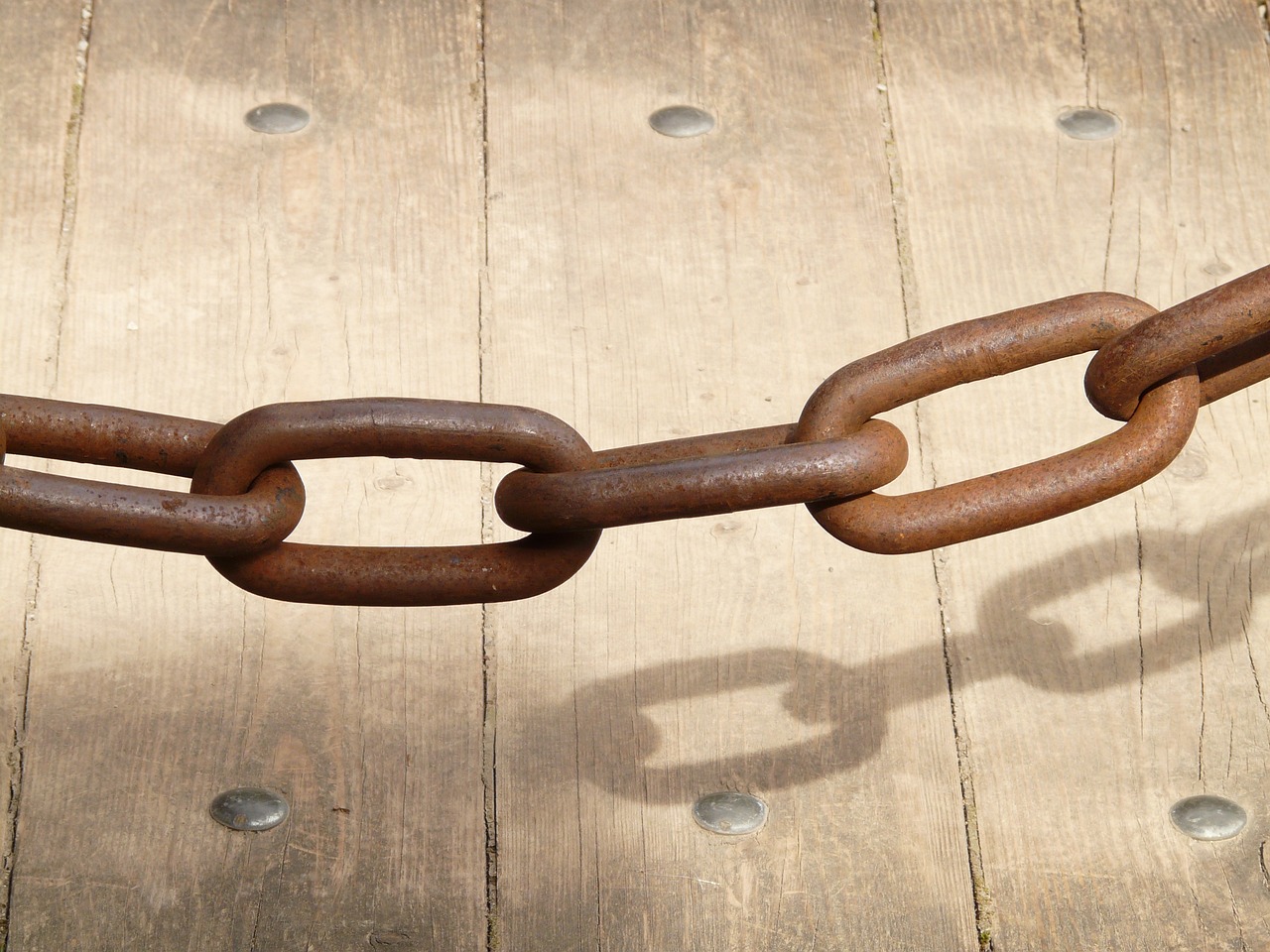
Collaboration Among Stakeholders
In today's interconnected world, the concept of collaboration among stakeholders in supply chains has never been more vital. As businesses strive to enhance their ethical practices, blockchain technology emerges as a powerful tool that fosters cooperation and transparency among all parties involved. Imagine a bustling marketplace where every vendor, from the farmer to the retailer, communicates seamlessly, sharing vital information about their products. This is the essence of collaboration that blockchain can facilitate.
One of the most significant advantages of blockchain is its ability to create a single source of truth. When all stakeholders—from manufacturers and suppliers to consumers—have access to the same immutable data, it reduces the chances of miscommunication and misinformation. For instance, if a company claims its products are sustainably sourced, stakeholders can verify this claim through blockchain records. This not only builds trust but also encourages businesses to uphold their ethical commitments, knowing that their practices are transparent and verifiable.
Moreover, the collaborative nature of blockchain allows for shared responsibility. Each participant in the supply chain can contribute to monitoring and maintaining ethical standards. For example, if a supplier recognizes a potential violation of ethical practices, they can alert others in real-time, prompting immediate action. This proactive approach transforms the supply chain from a linear process into a dynamic network, where everyone is invested in the success of ethical practices.
To illustrate this point, let’s consider a hypothetical scenario involving a coffee supply chain. Imagine a coffee producer, a distributor, and a retailer all connected through a blockchain network. The producer can record data about the coffee beans' growth conditions, harvesting practices, and transportation. The distributor can access this information to ensure that the beans meet quality standards, while the retailer can verify the beans’ ethical sourcing to appeal to conscious consumers. This collaborative ecosystem not only enhances the product’s integrity but also increases consumer confidence.
Furthermore, blockchain can facilitate partnerships between companies that may not typically collaborate. For instance, a small organic farm could partner with a large supermarket chain through a blockchain platform, allowing them to share resources and information. This collaboration can lead to innovative solutions that promote ethical practices while also benefiting all parties involved. By pooling resources and knowledge, stakeholders can tackle challenges that may be too daunting for any single entity to face alone.
In conclusion, collaboration among stakeholders in supply chains is essential for promoting ethical practices. Blockchain technology not only enhances transparency and accountability but also encourages shared responsibility and innovation. As businesses continue to embrace this technology, we can expect to see a significant shift towards more ethical supply chains, benefiting not only companies and consumers but also the planet as a whole.
- What is blockchain technology?
Blockchain technology is a decentralized digital ledger that records transactions across multiple computers securely and transparently, making it nearly impossible to alter or hack.
- How does blockchain enhance supply chain transparency?
Blockchain allows all stakeholders to access real-time data about products, from their origin to their final destination, ensuring that every step in the supply chain is accountable.
- What role do smart contracts play in supply chains?
Smart contracts automate processes and enforce agreements between parties, ensuring that ethical standards are met consistently without the need for intermediaries.
- Can blockchain reduce fraud in supply chains?
Yes, by providing a secure and transparent record of transactions, blockchain helps to mitigate risks of fraud and counterfeiting, leading to more reliable sourcing.
Frequently Asked Questions
- What is blockchain technology?
Blockchain technology is a decentralized digital ledger that records transactions across many computers securely and transparently. Each block in the chain contains a number of transactions, and once recorded, the data in any given block cannot be easily altered without altering all subsequent blocks, which enhances security and trust.
- How does blockchain improve supply chain transparency?
Blockchain enhances supply chain transparency by providing real-time visibility into the movement of goods. Stakeholders can track products from their origin to the end user, ensuring that every step of the supply chain is documented and verifiable, which builds trust among consumers and businesses.
- What are smart contracts and how do they work in supply chains?
Smart contracts are self-executing contracts with the terms of the agreement directly written into code. In supply chains, they automate processes such as payments and compliance checks, ensuring that ethical standards are met without the need for intermediaries, which can reduce costs and increase efficiency.
- Can blockchain help reduce fraud in supply chains?
Absolutely! Blockchain can significantly reduce fraud and counterfeiting by providing a secure and immutable record of transactions. This means that every product's journey can be traced, making it much harder for counterfeit goods to enter the market, thus ensuring that consumers receive authentic products.
- Why are ethical supply chains important?
Ethical supply chains are crucial because they respond to consumer demand for transparency and sustainability. Companies that prioritize ethical practices not only enhance their brand reputation but also contribute positively to society and the environment, which is increasingly important to today's conscious consumers.
- How does consumer demand influence supply chain practices?
Consumer demand for ethically sourced products pushes companies to adopt more transparent and responsible supply chain practices. As consumers become more aware of the impact of their purchasing decisions, businesses are compelled to provide proof of ethical sourcing and sustainability to maintain their market position.
- What challenges do traditional supply chains face?
Traditional supply chains often struggle with a lack of transparency, inefficiencies, and ethical violations. These challenges can lead to increased costs, damaged reputations, and loss of consumer trust. Blockchain technology addresses these issues by providing a clear, verifiable record of all transactions and interactions within the supply chain.
- How does blockchain foster collaboration among supply chain stakeholders?
Blockchain fosters collaboration by creating a shared platform where all stakeholders can access the same information. This transparency encourages collective responsibility and makes it easier for parties to work together towards common goals, such as improving ethical practices and operational efficiency.






